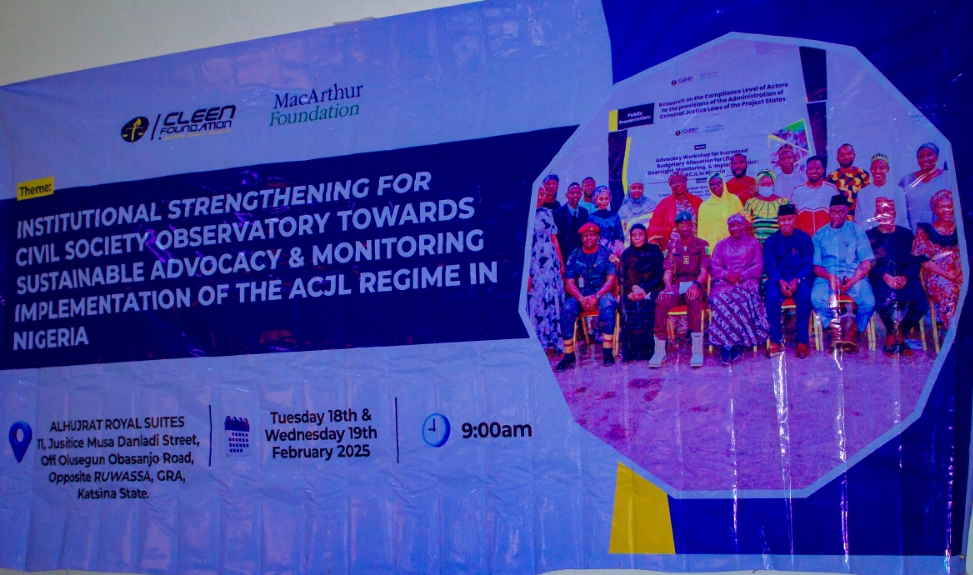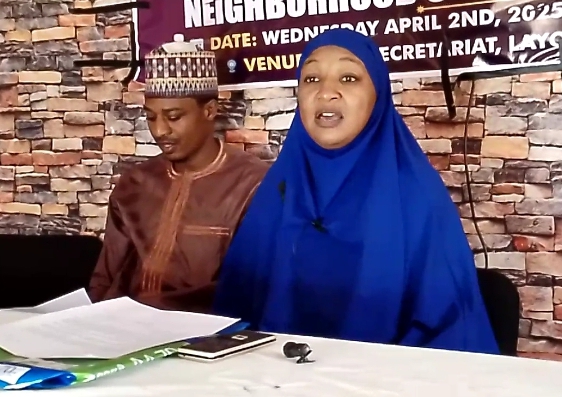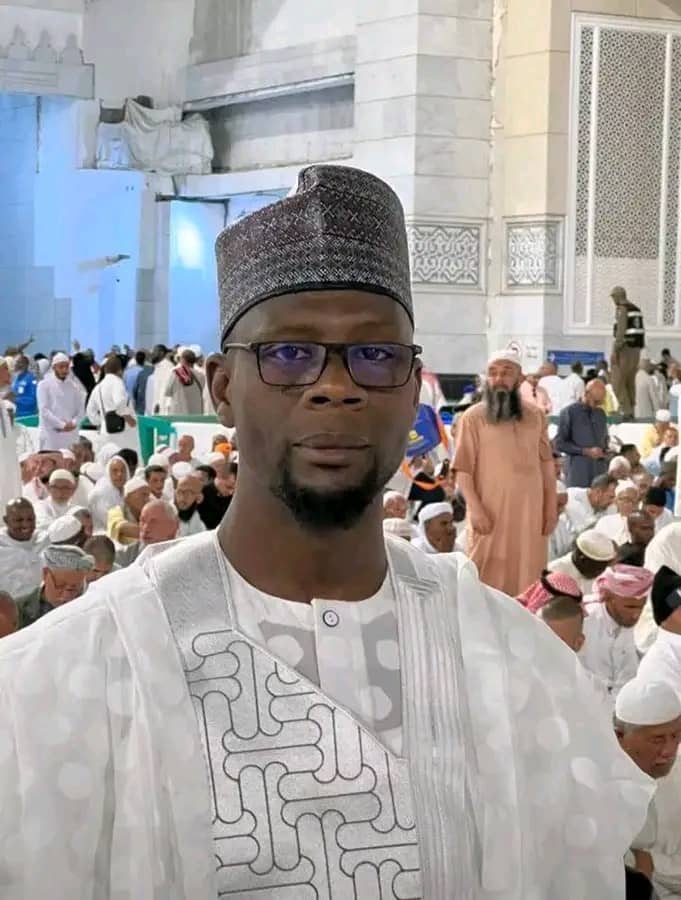As part of efforts to enhance sustainable advocacy and effective monitoring of the Administration of Criminal Justice Law (ACJL) in Nigeria, the CLEEN Foundation organized a two-day workshop focused on strengthening civil society observatory mechanisms.
The workshop, titled “Institutional Strengthening for Civil Society Observatory Towards Sustainable Advocacy and Monitoring Implementation of the ACJL Regime in Nigeria,” brought together legal practitioners, civil society organizations, and stakeholders in the criminal justice sector to explore strategies for ensuring the effective implementation of the ACJL nationwide.
Speaking at the event, CLEEN Foundation’s Executive Director, Peter Maduama, underscored the need for sustainability in justice sector reforms. He emphasized that fairness, transparency, and rehabilitation must remain central to ongoing efforts to improve the criminal justice system.
“In an era where justice continues to evolve, sustainability serves as a guiding principle, ensuring fairness and transparency remain foundational pillars. Your dedication to this cause reflects a strong commitment to upholding a just society,” Maduama stated.
Discussions at the workshop centered on key challenges hindering the full implementation of the ACJL, including resource constraints, resistance to reform, and limited public awareness. Participants were encouraged to develop strategies that would translate the knowledge and skills gained into practical improvements in courtrooms, correctional facilities, and law enforcement agencies.
Despite its potential to promote fair trials, decongest prisons, and create a more humane justice system, the ACJL has faced significant implementation hurdles. The event concluded with a call for sustained advocacy and concrete actions to ensure lasting progress in Nigeria’s criminal justice reform efforts.




